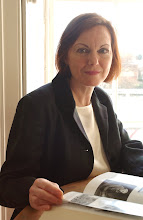


 Dave Barton has asked to be put in touch with Vivienne Lewis (née Horne), whose Gx3 grandfather, Thomas Horne, had a house in Gordon Square, Bloomsbury, and ran his successful coal merchant business from Bankside (where the Globe Theatre now stands, top picture) – see blog entries 21 April 2008, 30 March 2009 and 2 July 2009.
Dave Barton has asked to be put in touch with Vivienne Lewis (née Horne), whose Gx3 grandfather, Thomas Horne, had a house in Gordon Square, Bloomsbury, and ran his successful coal merchant business from Bankside (where the Globe Theatre now stands, top picture) – see blog entries 21 April 2008, 30 March 2009 and 2 July 2009.Dave writes: ‘Vivienne and I are 6th cousins. Her Gx3 grandfather and his brother William Horne were amongst the children of Anthony Horne. Anthony and Elizabeth Horne (my Gx4 grandma) were amongst the children of Thomas Horne senior (d.1802), who was the son of Benjamin Horne, who founded the coal business. Thomas Horne senior was my Gx5 grandfather, through his daughter Elizabeth (1760-1833, second picture from top), who married John Barton (1754-1789, third picture from top), one of the nine English Quaker members of the “Society for the Abolition of the Slave Trade” set up in 1787 by William Wilberforce and two other Anglicans. Their efforts ultimately led to the passing, by British Parliament, of the Abolition of the Slave Trade Act (1807).’
John Barton’s son, John (1789-1852, Dave’s Gx3 grandfather, bottom picture), was a botanist and political economist, and a lifelong supporter of schools and mechanics’ institutes (established to promote the education of working people). In December 1823 he was elected a member of the governing committee responsible for setting up the London Mechanics' Institution, and his name was included on the foundation stone in the entrance hall of Birkbeck College, then in Chancery Lane. (The London Mechanics’ Institution was renamed Birkbeck Literary and Scientific Institution in 1866, and is now Birkbeck College, part of the University of London, in Bloomsbury). John Barton was acquainted with its chief founder, George Birkbeck, and other members such as David Ricardo, George Grote, Jeremy Bentham (also a founder, in 1826, of University College London) and William Cobbett. Barton’s economic writings influenced both David Ricardo and Thomas Malthus although he disagreed with both on aspects of employment and wages. Like Malthus, Barton tackled the issue of the effects of overpopulation. He argued that only where land was cheap and plentiful would economic growth be maximised and he therefore supported emigration to Canada and other colonization schemes. His ideas were discussed by Karl Marx in Das Kapital.
In 1827, John Barton left the Society of Friends and joined the Church of England, becoming a churchwarden at Stoughton, Chichester, West Sussex. His first wife having died in 1822, he married Fanny Rickman in 1828, and they had nine children. Fanny and their 4-year-old daughter, Sarah, died of scarlet fever in 1842.
About 1833, John Barton had his first four economics pamphlets bound in one volume and gave copies to Lord Grey who steered the Reform Bill through Parliament, Sir Robert Peel, the Duke of Richmond, Lord G Lennox, Sir George Staunton FRS and Lord Althorp. John was half-brother to Bernard Barton (1784-1849), a minor poet, and Maria Hack (née Barton, 1777-1844), a children’s writer. John, Bernard and Maria have entries in the Oxford Dictionary of National Biography.
Dave writes: ‘Every one of John Barton of Chichester's sons and son-in-laws were vicars! My Gx2 grandfather was another John (Rev. John Barton, a missionary in India and then Vicar of Holy Trinity Cambridge). He married a lady called Emily Eugenia Elliott, and her family history goes way way back, not just because of the already extensive Elliott pedigree but also because her grandmother Alicia Boileau was of Huguenot stock.’
Dave Barton contacted me in November 2010 to say that he has now set up a Barton family history site.
